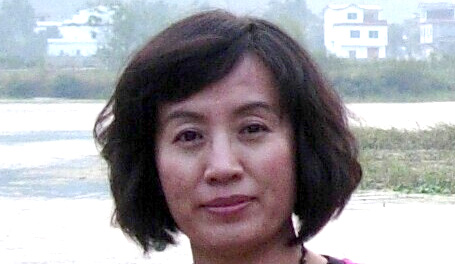JIANG HUA: Closer look reveals Western culture not universal

Since the 19th century, the modern West has touted the universality of its own culture and the belief that its views are representative of the entire world. In doing so, it has forced nations and regions to recognize its political and cultural dominance as well as its economic superiority.
This perspective has a bearing on the challenges currently facing China. Researching the claim that Western culture is universal and critiquing it through the lens of Marxism has great theoretical value and practical significance.
The notion of the universality of Western culture was established as the West achieved modernity. Beginning with the Enlightenment, Western culture went through accelerated periods of modernization that culminated in unprecedented “legitimacy” in the present globalized and postmodern era.
It has generally been acknowledged that modernity refers to the capitalist phase of development that has occurred since the Enlightenment and the basic norms. In a broad sense, modernity includes capitalist politics, economy, culture and social system, thought, behaviors, and lifestyles.
Since the 19th century, the West has attempted to export its culture to non-Western nations and regions with the help of the new mode of production and its advantages in terms of technology and systems. Its aim is to establish cultural hegemony. People in the West believe that modern Western culture is a universal value and the yardstick by which the world’s culture is measured.
Behind the concept is the logic of universality and egoism that denies the capability of others to develop their own civilizations independently or transforms other cultures into marginalized subcultures of Western culture. This has posed challenges to all other existing social patterns and cultural self-awareness.
At the end of the 20th century, modern Western culture advertised itself as a universal value within the context of globalization. This reflects a process of the West expanding the connotation and denotation of its culture. With the rapid development of economic globalization, some nations or groups of nations in the West have tried to globally elevate their social ideals to the level of international law. In essence, however, the practice constitutes an intervention in the affairs of other countries and a challenge to other ideologies. And the true purpose is to realize cultural identity based on modern Western culture.
The universality of modern Western culture was constantly challenged by Marx, who exposed the dilemma of capital and contended that as a core component of the modern world, capital itself had disclosed the inherent nature of modernity and its defects.
Based on the universality of capital and the capitalist relations of production, Marx pointed out that capitalism could not overcome its own limitations. Capital’s indefinite impulse to seek profit results in overproduction despite the restrictions that the capitalist system is unable to surmount. And it is this greed that makes the logic of capital untenable.
Marx identified inequality as the nature of capitalism. Although capitalism has created more wealth than ever, most people in society fail to share in the fruits, aggravating polarization between the rich and the poor. Marx uncovered the truth that the universal natural equality that is allegedly engendered by capitalism is an abstract concept based on assumption. Thus, Marx denied the legal foundation for the natural rights of the bourgeoisie and the modern culture of capitalism.
Capitalism’s tendency to produce inequality means that Western ideals, such as freedom and human rights, are not authentically universal and thus are not capable of serving as a legal common culture and a set of universal values for the entire world. This also can be proven from the perspective of world history provided by Marx’s theories on world revolution and communism. In Marx’s view, capitalism will end up falling apart due to its own contradictions and being replaced by the more reasonable socialist system.
In conclusion, Marx uncovered the drawbacks of Western modernity and negated the capitalist universalism from theoretical and historical perspectives. It can be learned that the understanding and expression of universal modern Western culture is just a discourse on culture or value rather than a truth, thus providing significant theoretical support for China in coping with challenges posed by the universalism of Western culture.
Jiang Hua is from the Cultural and Philosophy Research Center at Heilongjiang University.

 PRINT
PRINT CLOSE
CLOSE